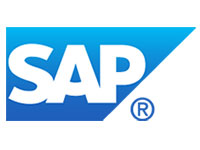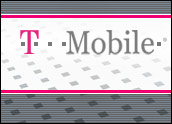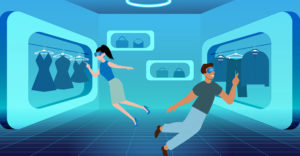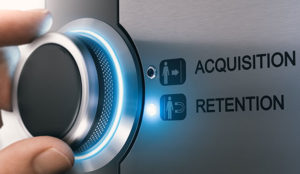
The home-agent contact center model has undergone a metamorphosis in the last few years. A few short years ago, it was the refuge of small companies that couldn’t afford to outsource operations to typical brick-and-mortar contact centers, said Alpine CEO Christopher Carrington.
However, larger companies are increasingly drawn to the model’s lower costs and often higher-skilled workers — a combination that usually cannot be duplicated in one physical location.
“Don’t forget — we can recruit from around the country,” Carrington told CRM Buyer. “Call centers, though, have to limit themselves to whoever lives within a reasonable commuting distance.”
Now, Fortune 500 companies routinely use home-based agents, he said. One strong sign that the home-agent contact center model has truly gone mainstream: Demand for Alpine’s services is strong enough that the company is actively recruiting new agents.
CRM Buyer: You are definitely a rarity in this economy. How many people are you looking to hire?
Christopher Carrington
: For this quarter, about 1,200 people. Last year, we hired 3,500 people in total. We are cautiously optimistic about the year, despite everything that has happened. Obviously, the economy is affecting many industries that use our services, but we think we might hire 4,000 people all together this year.
CRM Buyer: Can you elaborate? The top industries for the at-home customer service rep are financial services, telecom and retail, all of which are getting slammed.
Carrington
: They are definitely feeling the downturn with fewer customers and fewer customer transactions — and yes, that does translate to lower call volumes. But they are still using our services — only for different types of activities, such as collections.
We are also active in providing tech support. Even though transactions or purchases are down, more companies are increasingly favoring domestic agents for tech support due to the complexity of the products.
CRM Buyer: Can you describe for me the safeguards you have in place for at-home agents that are handling collections? They have access to sensitive data that has to be secured. Also, I would imagine your customers would want to make sure they follow the appropriate laws when collecting for a debt.
Carrington
: There are a lot of safeguards, starting with the basic fact that all of our phone calls are recorded. I would submit, though, that it is safer to handle these kinds of calls with an at-home agent force than with an outsourcer in a foreign country where our laws might not necessarily apply or be practically enforced.
Our employees tend to be the average age of 41. Also, 80 percent have been to college. They tend to be mothers and fathers who are more settled in life. … Our fastest-growing employee group is seniors. These are people who maybe retired early, played golf for three years and now want intellectual stimulation.
Compare that to a rep in a traditional center, who on average is 23 — someone who is younger and may make unfortunate and impulsive decisions. So the potential for fraud or inappropriateness is the least of my worries.
CRM Buyer: What requirements do you emphasize when you recruit?
Carrington
: We look for five to eight years of experience. Since we are talking about collections, I would add someone with a background in collections. The same would be true, of course, for tech support or customer service support. He or she has to pass a background check, credit check, drug test — and that is for all of our clients, not just financial services.
But speaking of financial services and circling back to your question about trust and the at-home agent: One of the big complaints we get is from [applicants] who went through a rigorous screening process and then failed the credit check at the end. Our philosophy is that if they cannot handle their own money, they certainly cannot handle our clients’ money.
CRM Buyer: When they are on the job, how do you ensure that both their workspace and the data they handle are secure?
Carrington
: They go through a rigorous training process that emphasizes security. Plus our equipment and applications meet PCI DSS standards. The agent cannot store any information on a hard drive — all she or he has are screens to work off of. When they are signed on, their PC is completely controlled by us, and we are monitoring it. So, if a virus got on it somehow, we could shut it off.
All of these innovations have earned us the confidence of Fortune 500 companies.
CRM Buyer: Can you tell me more about that? It seems to me the home-based agent industry has undergone a shift in the last few years, with larger companies preferring these networks to the brick-and-mortar call centers.
Carrington
: You are definitely right about that.
The innovations around security had a lot to do with that, especially for financial services companies. In 2006 or so, we started regularly signing on financial service providers, and that was the tipping point. Once other companies in other industries saw that the financial companies trusted us, they followed too.
CRM Buyer: What else do they like about this model?
Carrington
: Turnover is less. Home-based agents’ turnover is about half that of brick-and-mortar contact centers. By that I mean, let’s say a collections operation turnover is 100 percent, a home-based agent operation’s turnover is 50 percent. Catalog sales, which are far less stressful, might have an industry average turnover of 10 percent. Among home agents that number would be 5 percent. Training is so expensive, especially for financial services calls, that these are significant savings.
CRM Buyer: In general, how do the two models stack up to each other, cost-wise?
Carrington
: The home-agent industry is 15-to-25 percent less expensive than a brick-and-mortar operation.
CRM Buyer: I guess that’s another reason business is booming.
Carrington
: That’s right.





















































